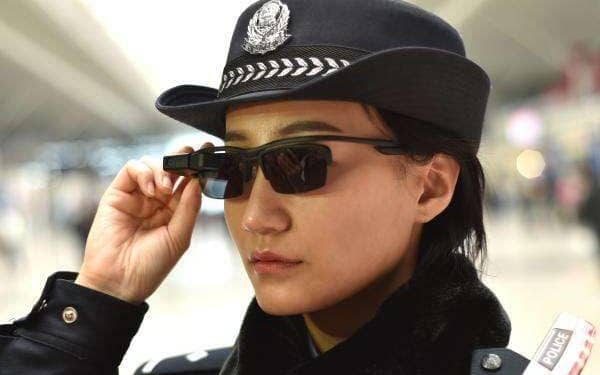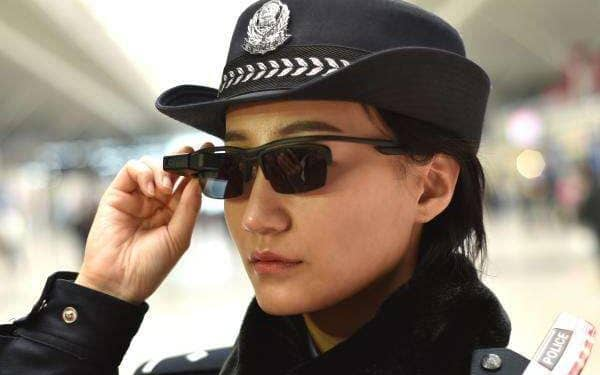Police at the Zhengzhou East Railway Station have arrested seven people who were suspected of being involved in kidnapping and hit-and-run cases during an operation which began last week, media reported.
They have also held another 26 people who were using fake identification cards.
Pictures of the operation, which were published online by the web version of China’s People’s Daily newspaper, show a female police officer wearing dark black sunglasses which have a small camera attached on the right-hand lens.


